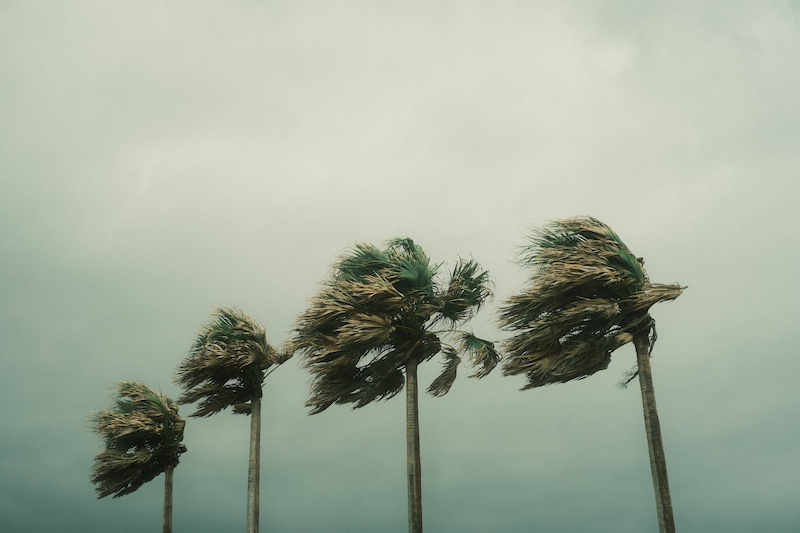- Does renters insurance cover damage to my property?
- Does renters insurance cover damage to my landlord’s property?
- Does renters insurance cover accidental damage I cause to my landlord's property?
- Does renters insurance cover damage to someone else’s home or belongings?
- Does renters insurance cover property damage due to natural disasters?
- Does renters insurance cover property damage due to pest infestations?
Your renters insurance provider could reimburse you for damage to your personal property–if the cause of that damage is a covered loss. However, your policy generally won’t cover damage to your rental building itself, which belongs to your landlord.
Your renters insurance could also cover damage you cause to another person’s property.
Let’s look at the fine print of how renters insurance could help with damage to your personal belongings, and some exceptions to keep in mind.
- A standard renters insurance policy covers your personal property against damage from named perils—like theft, fire, or windstorms.
- Renters insurance does not cover damages to your rental property itself, which would fall under your landlord’s insurance policy.
- Personal liability protection could also cover damages you cause to another person’s property, like if you go to a friend’s house and unintentionally destroy something valuable.
Does renters insurance cover damage to my property?

Renters insurance protects your personal property against the 16 named perils (aka the bad things that could happen to your stuff, listed out in your policy).
Your policy’s personal property coverage generally covers your damaged items up to your coverage limit, minus your deductible.
If, say, a small fire ignites in your kitchen and damages a few of your personal belongings, including your Macbook Pro, your renters insurance could reimburse you up to the actual cash value of the damaged items, depending on how much coverage you have.
And you could even be covered for property damage that happens away from home. So if your bike gets vandalized while it’s locked up outside the supermarket, your policy could protect you for that too.
Does renters insurance cover damage to my landlord’s property?
Renters insurance generally does not cover damages to your landlord’s property. Anything that belongs to your landlord–which typically includes your rental building itself as well as things like appliances–would be the responsibility of your landlord’s insurance policy.
However, renters insurance could step in to cover a few kinds of accidental damage to your landlord’s property that we’ll discuss below.
Does renters insurance cover accidental damage I cause to my landlord’s property?

While damages you cause to your rental unit generally fall under your landlord’s insurance policy, renters insurance might protect you in a few specific cases. And you also have the option of purchasing endorsements for additional accidental scenarios, including pet damage and water damage.
Most forms of accidental damage to your rental unit wouldn’t be covered by renters insurance. Let’s say, for example, that your avant-garde, 3D wall installation seriously chips away at the paint on your landlord’s walls and causes sizable damage. In this case, the damages inflicted by your masterpiece likely won’t be covered since the walls belong to your landlord and not to you.
However, there are still a couple of exceptions where your renters liability insurance could cover damages to your landlord’s property–so long as the damage comes about suddenly and accidentally. More specifically, you could be protected if you accidentally caused a fire, smoke, or an explosion that ended up damaging the building.
Picture this: your holiday party gets a little too rowdy, and a candle accidentally gets knocked over, starting a fire that spreads to a neighboring unit. In this case, the damages to the building might be protected by your renters policy. (Still, make sure to check out these holiday safety tips to prevent any future party mishaps.)
Standard personal liability coverage usually only covers building damage in instances of fire, smoke, or an explosion; however, when you buy a Lemonade renters insurance policy you can easily add endorsements for accidental pet damage and water damage. Should your chocolate lab, Bella, scratch the wood flooring a little too excitedly and end up damaging the finish, the pet add-on could help take care of the costs. (Keep in mind, though, that this endorsement only covers up to $500 in damages after your security deposit.)
And, if you want to know more about where your renters coverage ends and your landlord’s coverage begins, check out our guide to the differences between them.
Does renters insurance cover damage to someone else’s home or belongings?
Yes, your renters insurance might cover you if you damage another person’s property.
Your personal liability coverage could, for example, help cover the costs to repair or replace your friend’s deluxe, OLED flatscreen TV if you accidentally knock it over and destroy it during Sunday Night Football.
It’s important to keep in mind, though, that renters insurance won’t cover any car damages to someone else’s property; that would fall under your auto insurance policy.
Does renters insurance cover property damage due to natural disasters?

Renters insurance covers property damage from some natural disasters–with a few caveats.
Common natural disasters like tornadoes, hurricanes, wildfires, and winter storms could be covered, but it depends more specifically on what facet of the storm caused the damage. The damage from the disaster, that is, must be caused by a named peril.
Let’s say that a tornado ravages your neighborhood and causes property damage to your rental. If the tornado winds smash your window and destroy a few of your valuables, you’d likely be covered for the losses (although not for the window itself, which would fall under your landlord’s policy) since a windstorm is a named peril.
But you wouldn’t be covered if the tornado caused a flood that resulted in significant water damage to several of your belongings, since flooding isn’t a covered peril.
Other exclusions to disaster coverage include power outages and earthquakes. However, in certain states, you may have the option of purchasing earthquake coverage as an add-on. Make sure to give your policy a careful read-through to determine when you are and aren’t covered for natural disasters.
Does renters insurance cover property damage due to pest infestations?
No, renters insurance generally does not cover property damage caused by pests.
So if you were forced to replace your couch and mattress thanks to the dreaded scourge of bed bugs, your losses would not be covered by your renters policy. However, you can at least take solace in the fact that your landlord is legally required to pay for any pest control services–many of which will nip the infestation in the bud before your stuff gets irreparably damaged.
Before we go…
A renters insurance policy can protect your personal property in so many different bad scenarios, and could even help out for some accidental damages you might cause to someone else’s stuff.
Click below to start your free quote .
A few quick words, because we <3 our lawyers: This post is general in nature, and any statement in it doesn’t alter the terms, conditions, exclusions, or limitations of policies issued by Lemonade, which differ according to your state of residence. You’re encouraged to discuss your specific circumstances with your own professional advisors. The purpose of this post is merely to provide you with info and insights you can use to make such discussions more productive! Naturally, all comments by, or references to, third parties represent their own views, and Lemonade assumes no responsibility for them. Coverage and discounts may not be available in all states.




